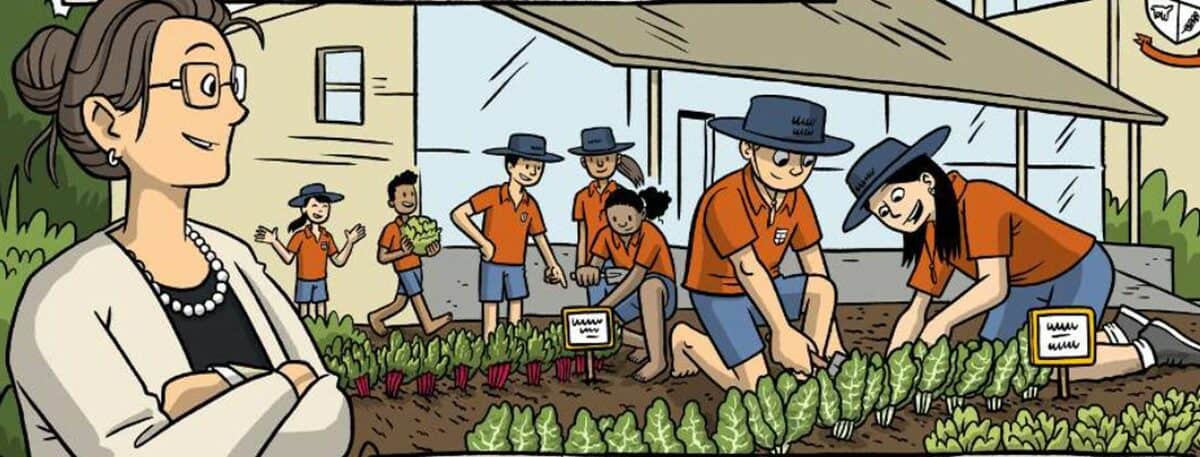Illustrations bring dietary modelling to life
26 August 2024
Sustainable New Zealand Kai lead researcher Dr Cristina Cleghorn (University of Otago Wellington) has been working with writer and illustrator Toby Morris over the last 12 months to portray the results of dietary modelling research.
The project designed a New Zealand version of the international EAT-Lancet diet to meet this country’s dietary guidelines at minimal additional cost to individuals. Modelling results showed that adoption of a healthy and sustainable diet across the population would generate large health gains, cost savings to the health system, reductions in greenhouse gas emissions, and would improve health equity:
https://healthierlives.co.nz/wp-content/uploads/Modelling-methods-and-theoretical-scenarios.pdf

Researchers consulted government, industry and community representatives to identify policies that could potentially support New Zealanders to adopt healthier and more sustainable eating patterns. Five stakeholder-selected policies with good evidence of effectiveness were modelled to estimate their potential impacts.
All five policies would result in health benefits and more equitable health outcomes. Three of them (removing GST from core sustainable foods; education campaigns; and healthy food and drink policies in schools) would result in overall cost savings. The other two would be cost-effective (garden-to-table programmes in schools) or borderline cost-effective (māra kai and community gardens):
https://healthierlives.co.nz/wp-content/uploads/Modelled-impacts-of-dietary-policies.pdf
Toby Morris produced an animated comic portraying these results, which was published in The Spinoff to raise public awareness about the benefits that dietary change would bring:
https://thespinoff.co.nz/partner/09-07-2024/five-realistic-policy-ideas-for-a-healthier-nz
Some schools already participate in the Garden to Table programme, funded by a charitable trust. Another charity, Oke, has helped almost 50 schools across Auckland and the Waikato to build gardens as ‘outdoor classrooms’. The Sustainable New Zealand Kai modelling results provide evidence that school garden programmes not only have many benefits for young people but are also cost-effective and strongly enhance equity. Imagine if there was a garden classroom in every school!
Read about Opoho School’s experience:


